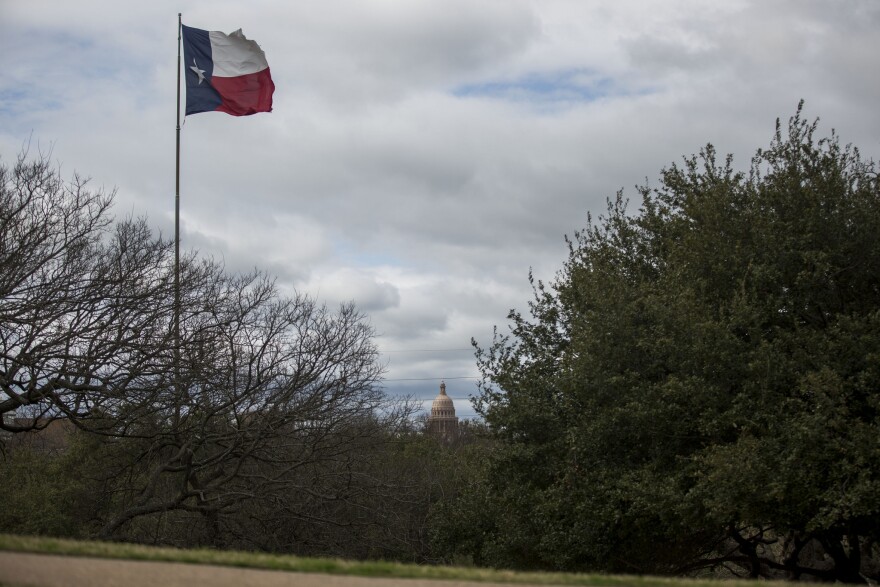At the start of the Texas legislative session, you might have characterized the number of bills reversing City of Austin regulations as an onslaught. There were bills to undo the city’s "ban the box" rule, its plastic bag ban, the city’s ride-hailing regulations.
Now that the Legislature has adjourned (for now), here’s how Austin actually fared.
'Sanctuary City' Fight (Senate Bill 4)

Austin became the focus of some lawmakers’ ire when Travis County Sheriff Sally Hernandez announced her new immigration policy in January. Hernandez said the county would no longer honor warrantless requests from Immigration and Customs Enforcement to detain suspected undocumented immigrants so federal agents could pick them up.
Senate Bill 4, which goes into effect Sept. 1, requires local law enforcement to honor all ICE detainers, regardless of the level of the crime with which someone has been charged. As Gov. Greg Abbott signed SB 4, he specifically called out Hernandez.
“This law cracks down on policies like the Travis County sheriff who declared that she would not detain known criminals accused of violent crimes,” he said.
On May 18, the City of Austin voted to sue the state over SB 4. That suit, when filed, would follow Attorney General Ken Paxton's suit against Austin and Travis County, seeking to get the bill preemptively declared constitutional. Austin has already filed a motion to have that lawsuit dismissed.
Ride-Hailing Regulations (House Bill 100)

Ride-hailing companies Uber and Lyft returned to Austin on Monday, following the governor’s signing of HB 100. The state law overrides local ride-hailing regulations, upheld by voters last May, which required drivers to undergo fingerprint-based background checks.
HB 100 still requires companies to do background checks of drivers, but fingerprints are no longer mandated.
Affordable Housing (House Bills 3281 and 1449)

Two bills – one that encourages the creation of affordable housing funds and the other which discourages it – are headed to the governor’s desk. House Bill 3281 expands the number of cities that can create homestead preservation districts to include Austin. Local lawmakers can collect a percentage of property taxes from certain neighborhoods, and then use those funds to invest in affordable housing in that same neighborhood.
Meanwhile, House Bill 1449 outlaws linkage fees, or a fee cities can levy on new or rehabilitated development to pay for affordable housing. While the City of Austin does not currently have a linkage fee, there have been discussions of creating one.
Still To Be Determined: Property Taxes
Lawmakers could use the special legislative session which appears to be on the horizon, to tackle property tax reform. According to the Texas Tribune, the Senate and the House closed their regular sessions split over how large a percentage tax increase a city can impose without triggering a public vote – the House backs the current cap of 8 percent, while the Senate is gunning for 5 percent. Mayor Steve Adler has said a lower cap would limit the city’s ability to pay for essential services.
Watch Senior Editor Ben Philpott, City Hall Reporter Audrey McGlinchy and Health Care Reporter Ashley Lopez discuss the legislative session:




